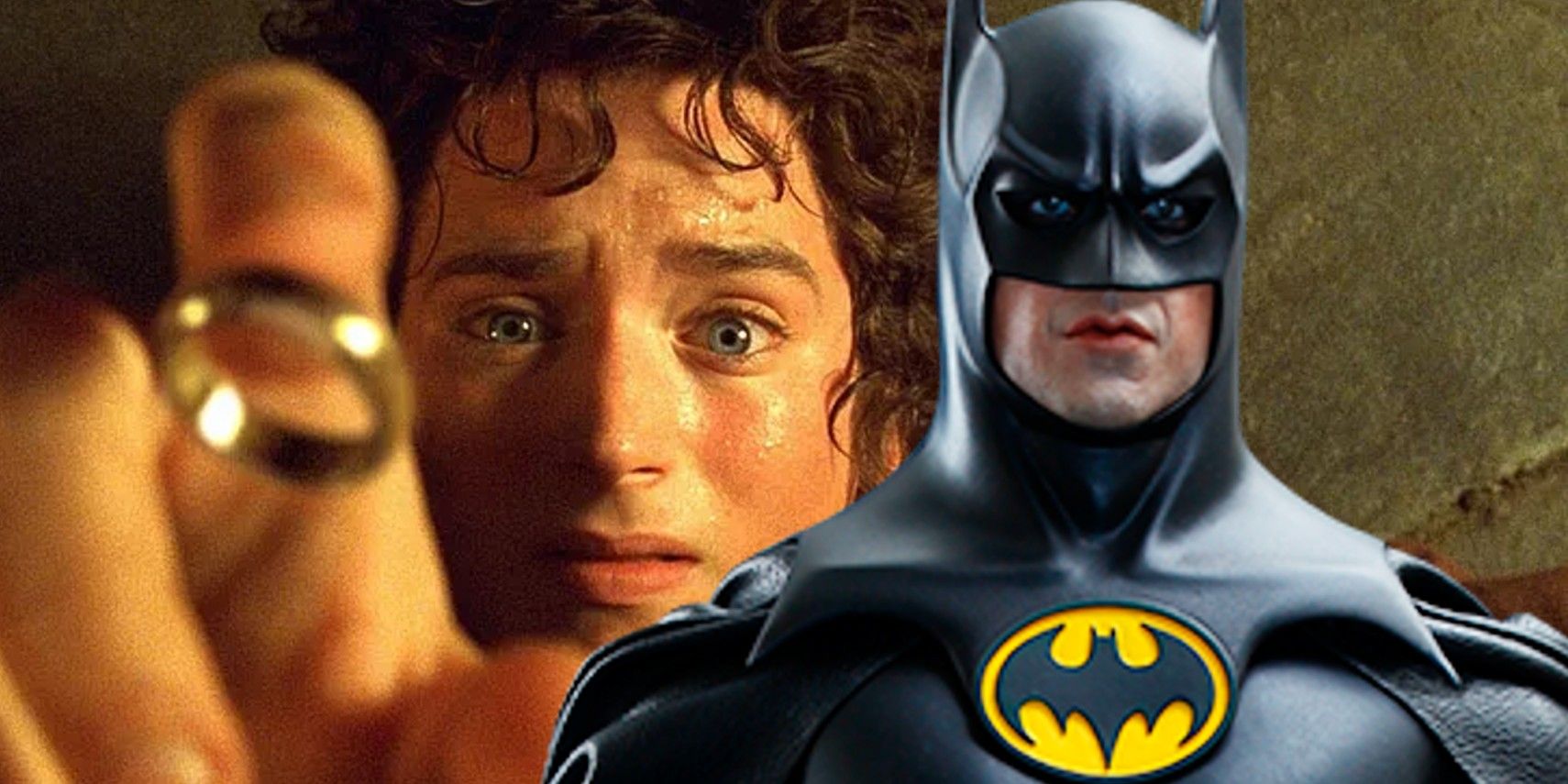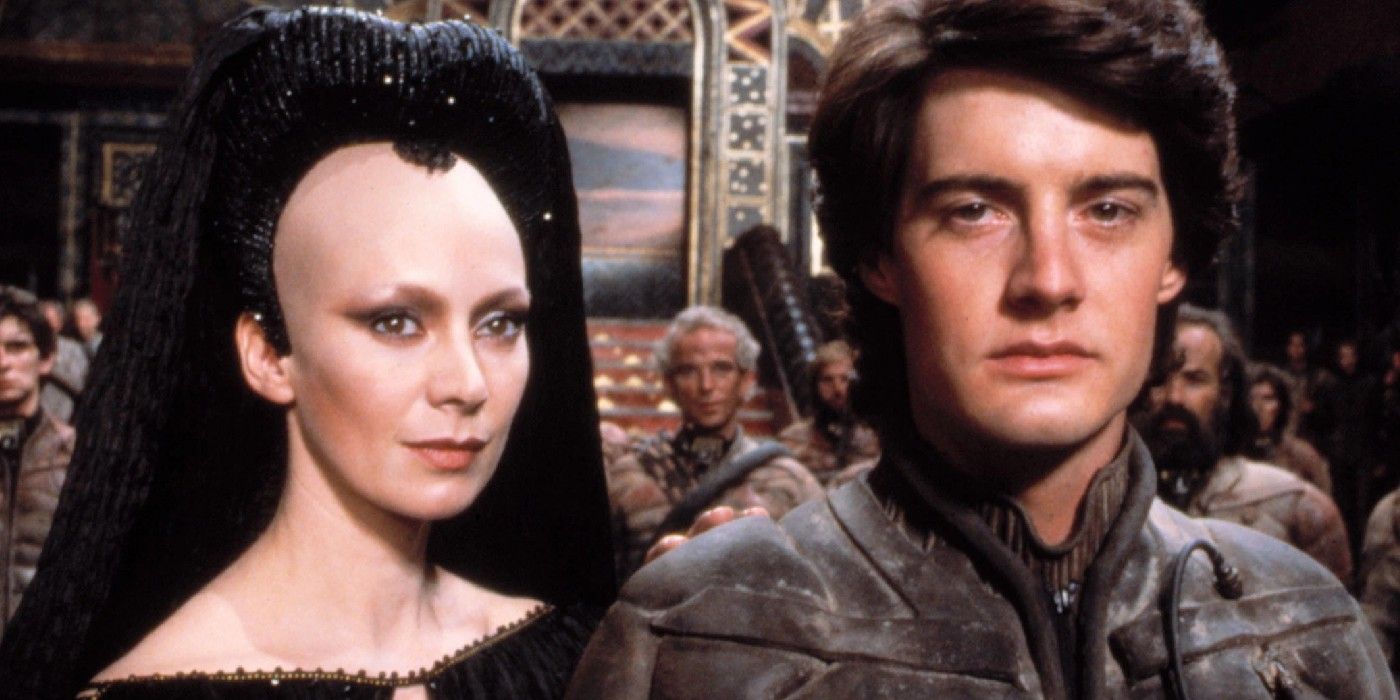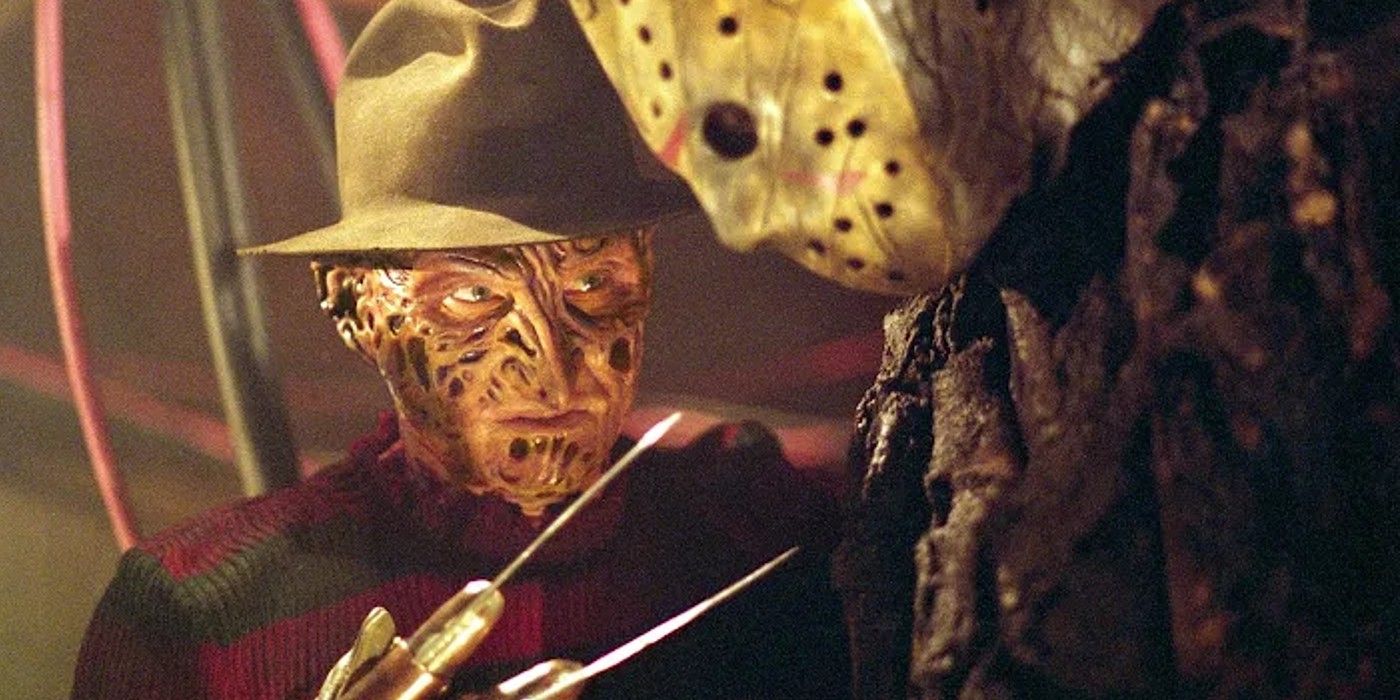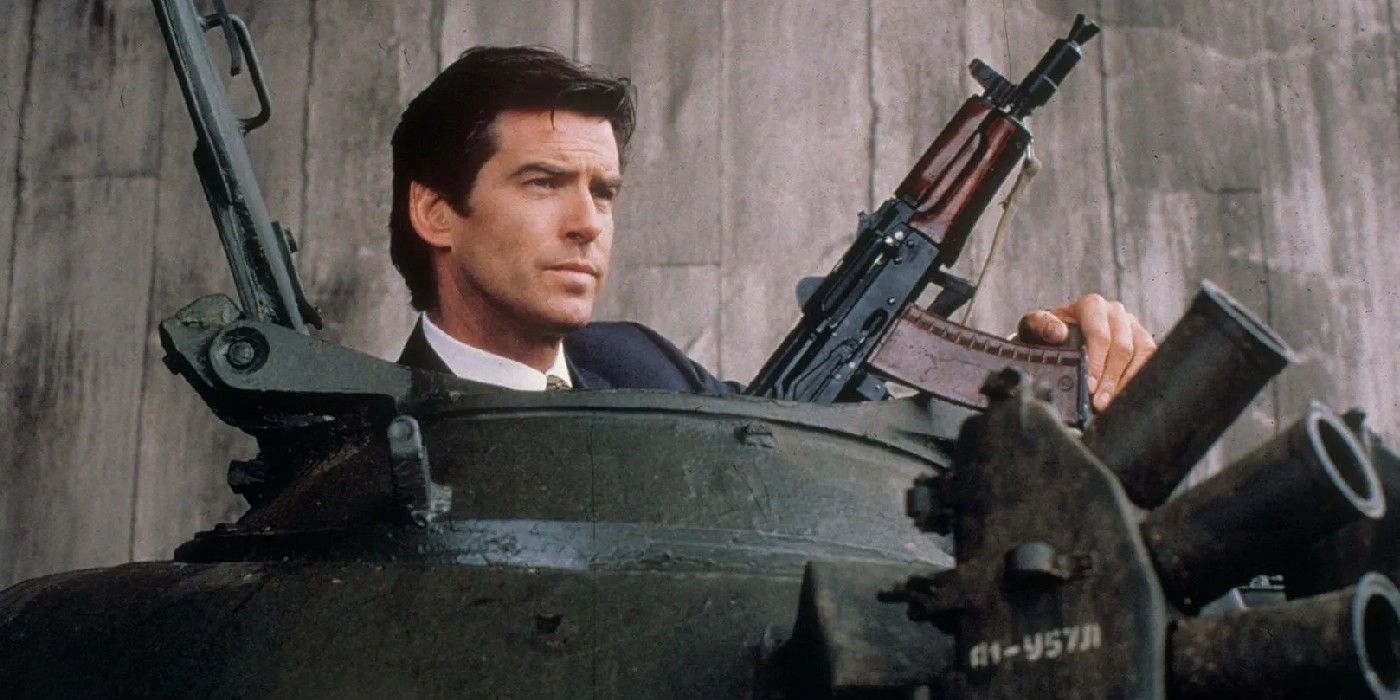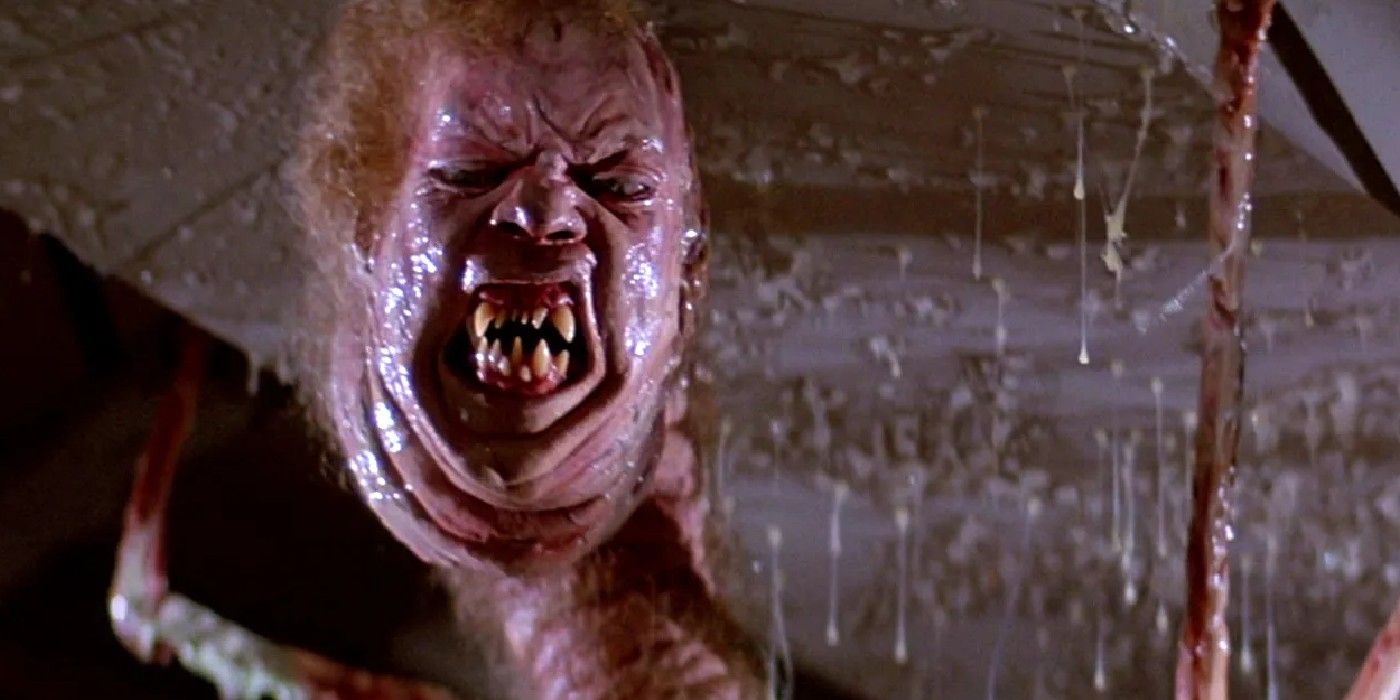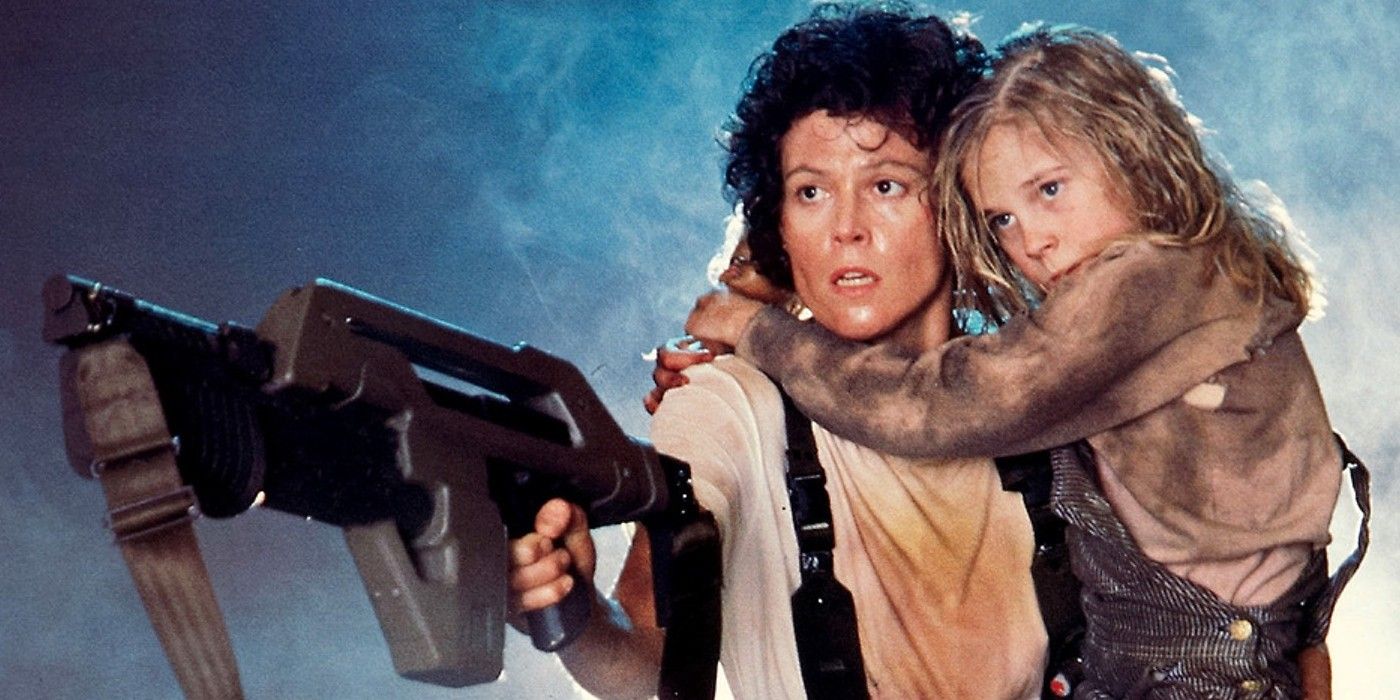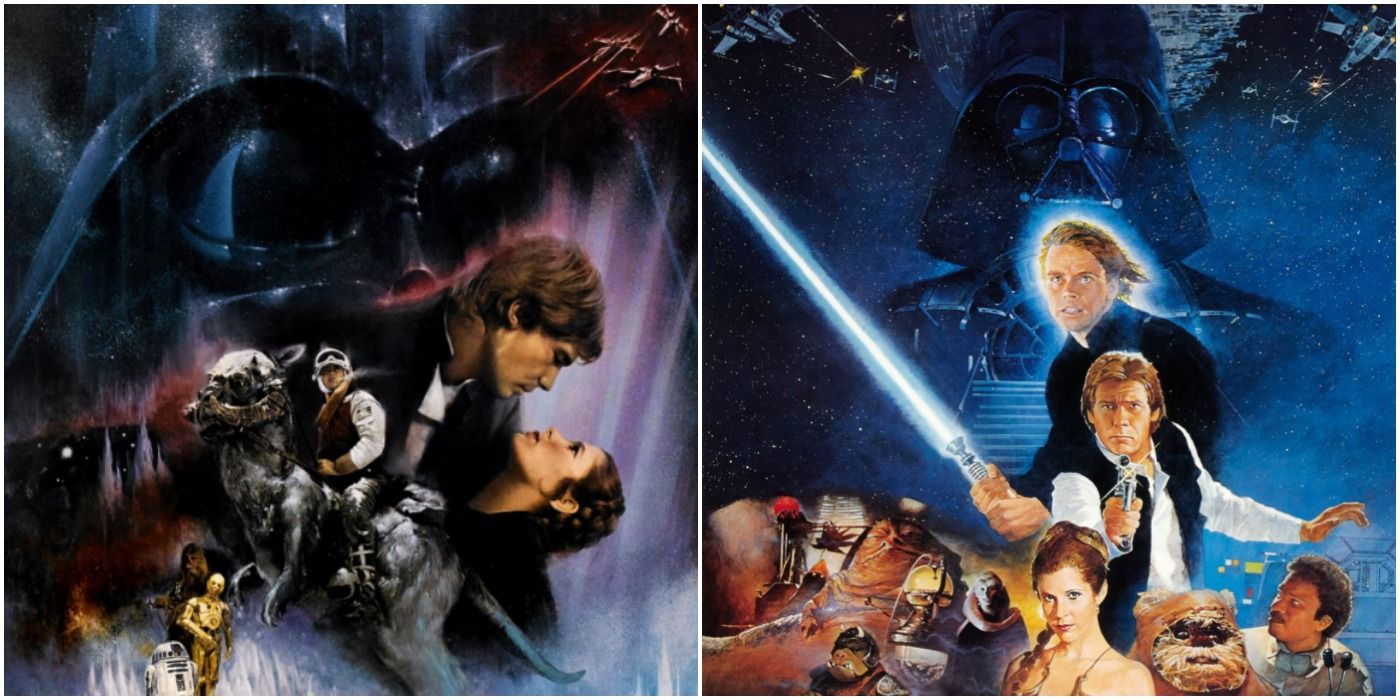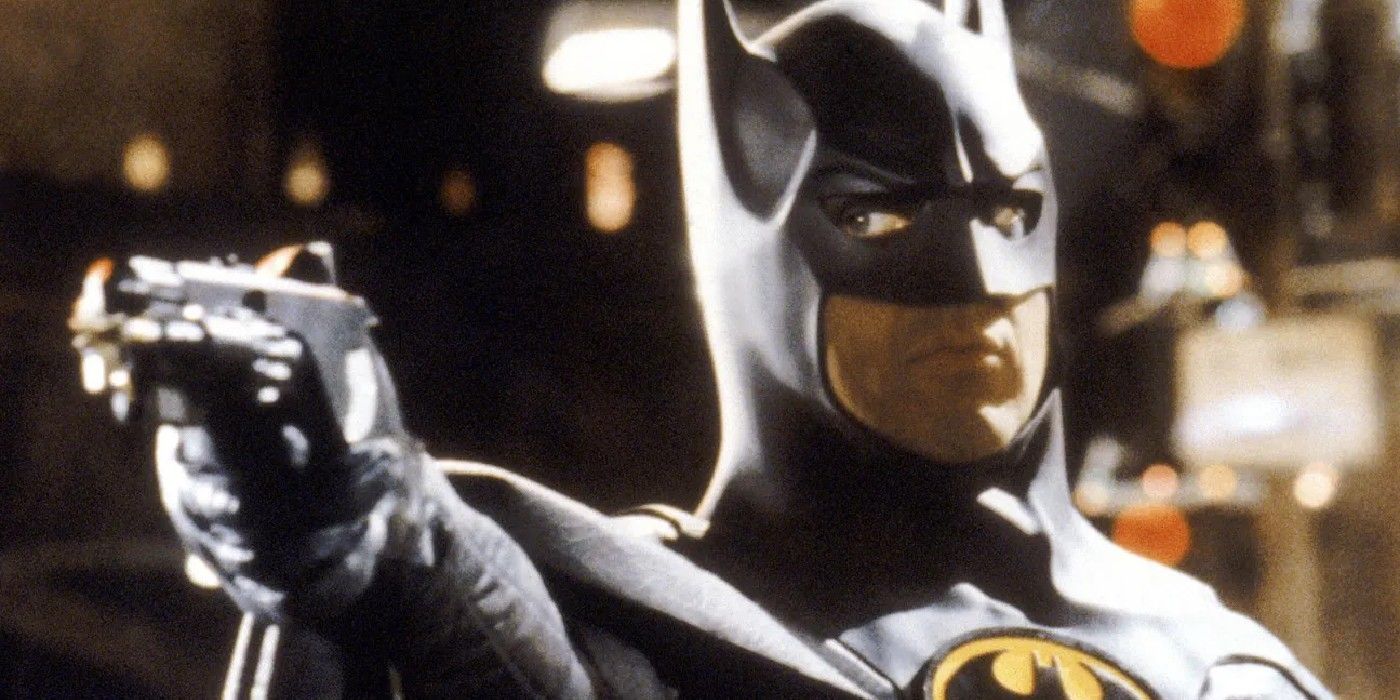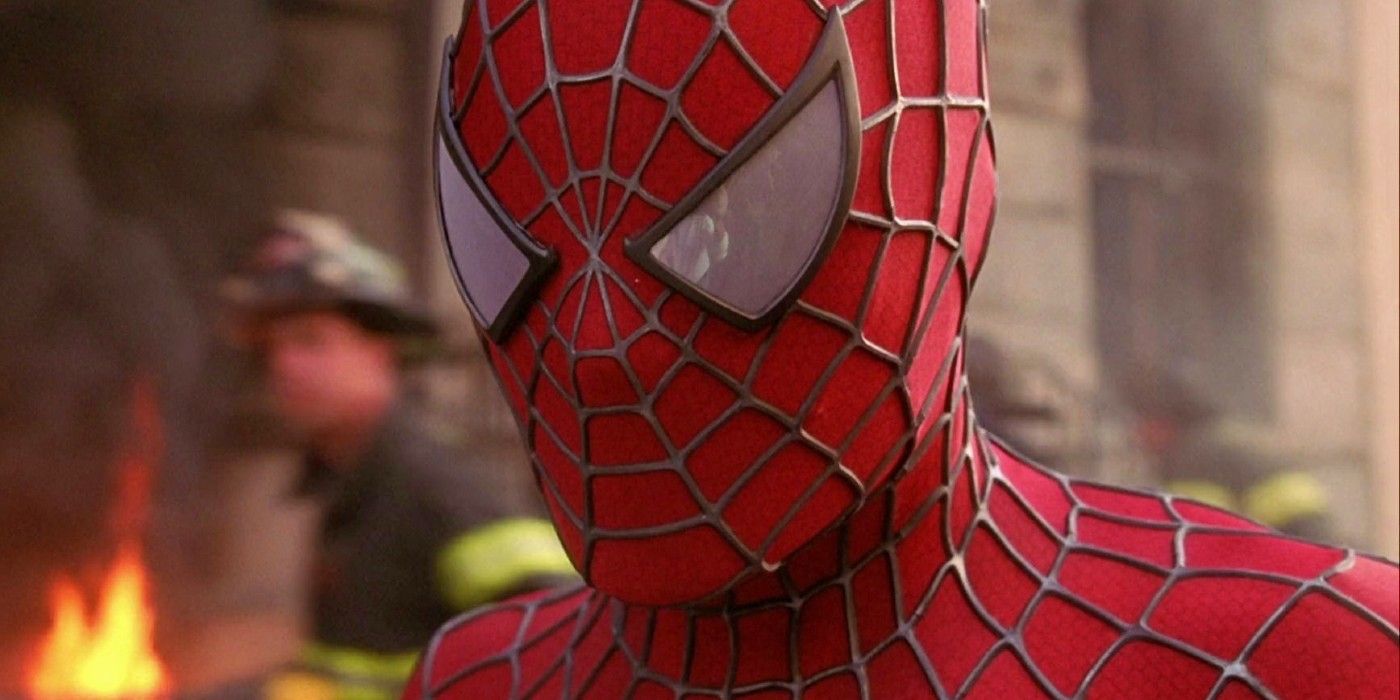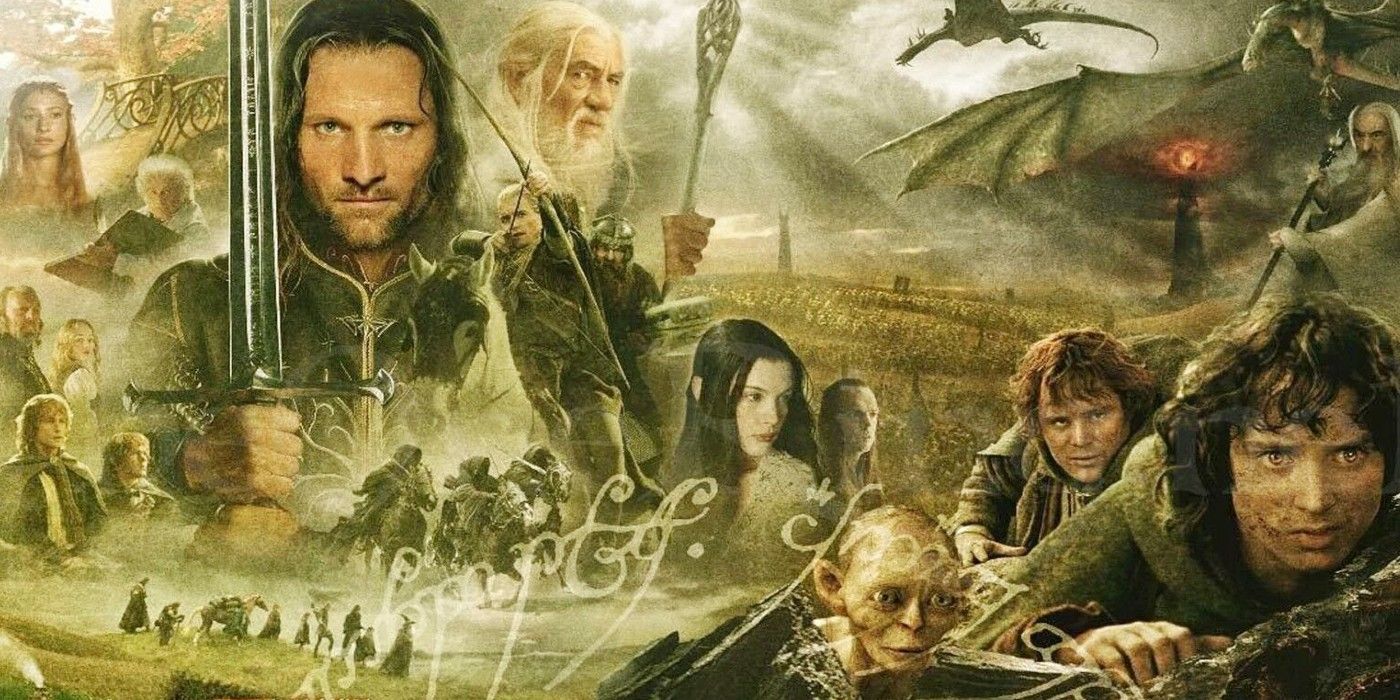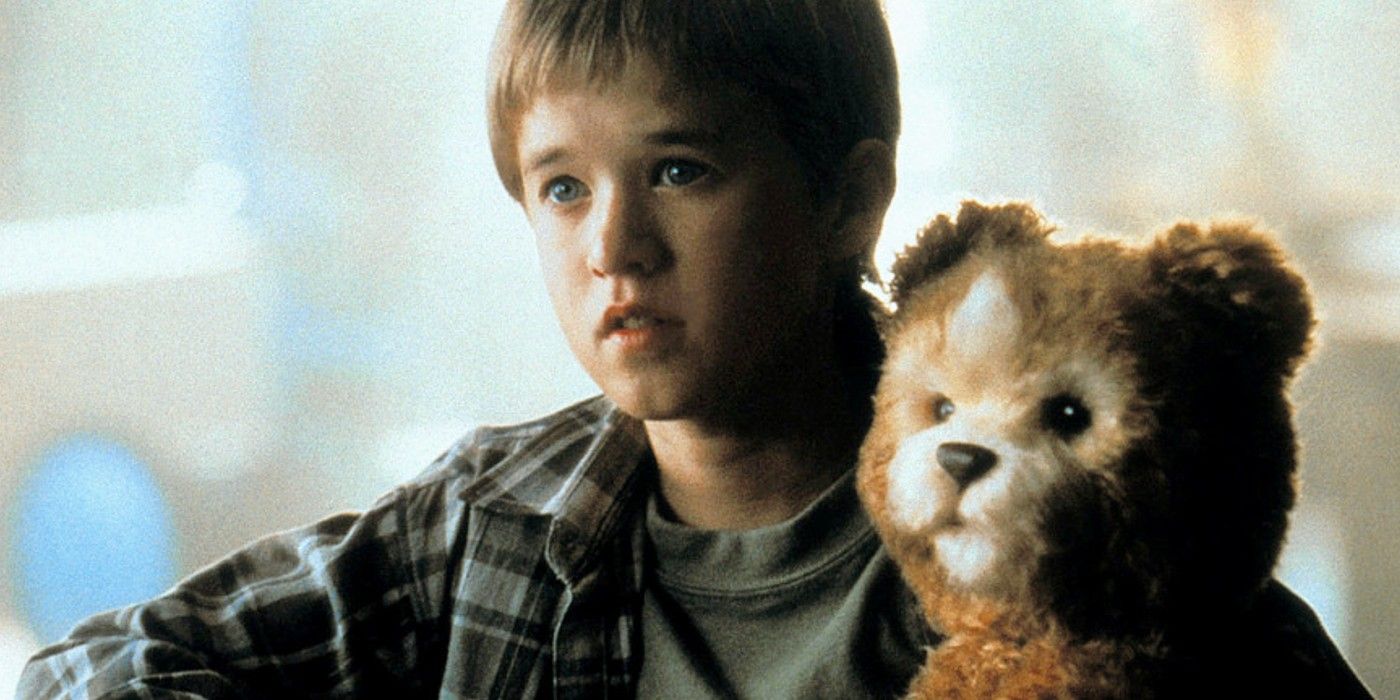The filmmaking process is infamously more complex than it appears to be to outsiders, and this is the case even before any sets are built or the cameras start rolling. Case in point, a director, their team, and even producers could be replaced midway through development, changing everything.
While these kinds of changes can cause a lot of headaches, they aren't always a bad thing. From cult classics to modern masterpieces, these movies improved or even escaped development hell thanks to a sudden last-minute change among the filmmakers and/or producers.
10 Dune (1984) Became A Cult Classic Thanks To David Lynch
Frank Herbert's Dune had long been considered impossible to adapt, but this didn't deter Alejandro Jodorowsky. If he got his way in the '70s, Dune would've been 14 hours long and cost almost $50 million by today's calculations. After Jodorowsky's Dune failed to find potential financiers, the book's rights shifted to Dino de Laurentiis, who hired David Lynch to take over.
Though Lynch's Dune bombed so hard in 1984 that he disowned it, its extended version became one of the most revered cult sci-fi movies ever. Herbert's epic got another shot in Denis Villeneuve's better-received Dune (2021), but some argue that Lynch's weird cult hit isn't just better than its reputation claims, but better than Villeneuve's version.
9 Freddy Vs. Jason Gave Its Franchises Their Grand Finales After Countless Rewrites
Freddy Vs. Jason wasn't just iconic for pitting two of the most famous slasher killers against one another, but for giving both A Nightmare On Elm Street and Friday The 13th a fittingly campy grand finale. That being said, the beloved cult slasher crossover was in the works ever since 1987, and only saw the light of day in 2003.
The delays stemmed from Freddy and Jason's series being owned by different studios (New Line Cinema and Paramount Pictures, respectively) that couldn't agree on a script. New Line later bought the rights to Friday The 13th, but they then went through many writers before settling on Mark Swift and Damian Shannon, who notably scrapped all of the previous pitches.
8 GoldenEye Saved James Bond From Obscurity In The '90s
Though it was vindicated by time, License To Kill was one of the James Bond franchise's first major duds. Plans for a sequel were already in motion when the movie hit theaters, but they were drastically altered following its underperformance. One of the biggest changes was, of course, replacing Timothy Dalton with Pierce Brosnan as 007.
Besides this, GoldenEye was rewritten because of the Cold War's end in 1991. Before settling on director Martin Campbell and writers Jeffrey Caine and Bruce Feirstein, producers went through many options including John Landis and Michael France. The delays were worth it, as GoldenEye revitalized 007 through a much-needed modernization and also became one of the best action movies of the '90s.
7 The Thing (1982) Was Initially A Tobe Hooper Project
Today, The Thing is considered to both be one of the greatest horror movies ever made and one of John Carpenter's best works. But despite having co-producer Stuart Cohen's recommendation in 1974, Carpenter was not Universal Pictures' first choice. Instead, they picked Tobe Hooper of The Texas Chain Saw Massacre fame to helm it.
Hooper pitched his treatment, but Universal didn't like it. They then futilely considered different filmmakers before shelving the remake of The Thing From Another World for a while. Following Alien's success as a horror blockbuster, Universal returned to Carpenter, who then directed a movie that initially flopped but has since been vindicated by time.
6 Aliens Redefined The Action Movie Under James Cameron's Direction
In 1979, Alien wasn't just one of its year's biggest movies, but a watershed horror movie as well. Producers wanted a sequel, but it took almost a decade for it to manifest because of legal disputes. When the dust settled in 1983, 20th Century Fox commissioned James Cameron to write a treatment after being impressed by The Terminator.
Cameron replaced original writer/director Ridley Scott, who was reportedly not approached because he was difficult to work with during Alien. As polarizing as switching from Scott's horror to Cameron's action was, it turned out for the best. Aliens didn't just become one of the biggest '80s hits, but it changed action movies overnight to the point where its formula is still copied today.
5 The Empire Strikes Back & Return Of The Jedi Were Not Written & Directed By George Lucas
Despite Star Wars being his passion project, writer/director George Lucas was burned out by the stressful demands of making a blockbuster movie. Lucas had the basic beats of his epic saga in mind, but he realized that he couldn't bring it to life alone. He then hired others to help him complete the trilogy while he handled the overall vision and business.
The Empire Strikes Back was written by Leigh Brackett and Lawrence Kasdan, with Irvin Kershner directing, while Return Of The Jedi was written by Kasdan and Lucas and directed by Richard Marquand. This worked out for the best, as the original Star Wars trilogy became a pop-culture juggernaut and one of the most important sagas ever filmed.
4 Batman Legitimized The Superhero Movie After Going Through Many Studios & Filmmakers
When the campy '60s-era Batman lost his popularity in the 70s, his parent network CBS sold his film rights to Benjamin Melniker and Michael E. Uslan; two producers who saw potential in a dark Batman reboot. They pitched their take to studios like Columbia Pictures and United Artists, who rejected them because they wanted more of the '60s Batman.
Batman was optioned by Warner Brothers, and some of their choices for director included Joe Dante and Ivan Reitman before Tim Burton was chosen. Burton's Batman didn't just legitimize the superhero movie as a lucrative blockbuster, but also revitalized Batman's then-ailing credibility by turning him into the immensely popular dark avenger seen today.
3 Spider-Man Started The Superhero Renaissance After Being Passed Around For 17 Years
For the longest time, Spider-Man was the face of Marvel Comics, but his popularity took decades to translate into a movie. In 1985, Cannon Films optioned the web slinger's rights, only to sell them to Carolco Pictures and MGM, then to Columbia Pictures and Sony. Sam Raimi directed the movie, but he wasn't Columbia or Sony's first choice.
Originally, producers looked to Chris Columbus, David Fincher, M. Night Shyamalan, and others, but they either turned it down or were dropped. Raimi's Spider-Man didn't just become a successful superhero movie and trilogy, but it also started the superhero boom and revival of the 2000s that eventually paved the way for the Marvel Cinematic Universe.
2 The Lord Of The Rings Trilogy Wouldn't Exist Without New Line Cinema
A live-action The Lord Of The Rings was in development ever since United Artists bought the rights to J.R.R. Tolkien's epic in 1973, but nothing manifested due to the books' sheer scale and scope. In 1995, Peter Jackson pitched a two-movie adaptation (plus The Hobbit as a prequel) to Miramax, which they agreed to before creative differences set in.
Miramax pressured Jackson to condense the adaptation into one movie, which he refused. The director then moved to New Line Cinema, which encouraged him to expand his pitch into a trilogy. Jackson brought Middle-Earth to life as he envisioned, and The Lord Of The Rings became one of the most successful and important trilogies ever made.
1 A.I. Artificial Intelligence Was Finished By Steven Spielberg After Stanley Kubrick's Passing
As far back as the late '70s, the famously cynical Kubrick changed course and planned to adapt Brian Aldiss' "Super-Toys Last All Summer Long" into a heartfelt kids movie. Kubrick wrote it and invited his friend, the blockbuster icon Spielberg, to direct it in 1985. Though flattered, Spielberg declined due to his busy schedule and believed Kubrick should direct.
Kubrick planned to work on A.I. Artificial Intelligence after Eyes Wide Shut, but he passed away while editing the film. Out of respect, Spielberg revived A.I. and stuck closely to Kubrick's vision - up to including Kubrick's then-polarizing happy ending. The result was one of the highest-acclaimed sci-fi movies of the 2000s.

